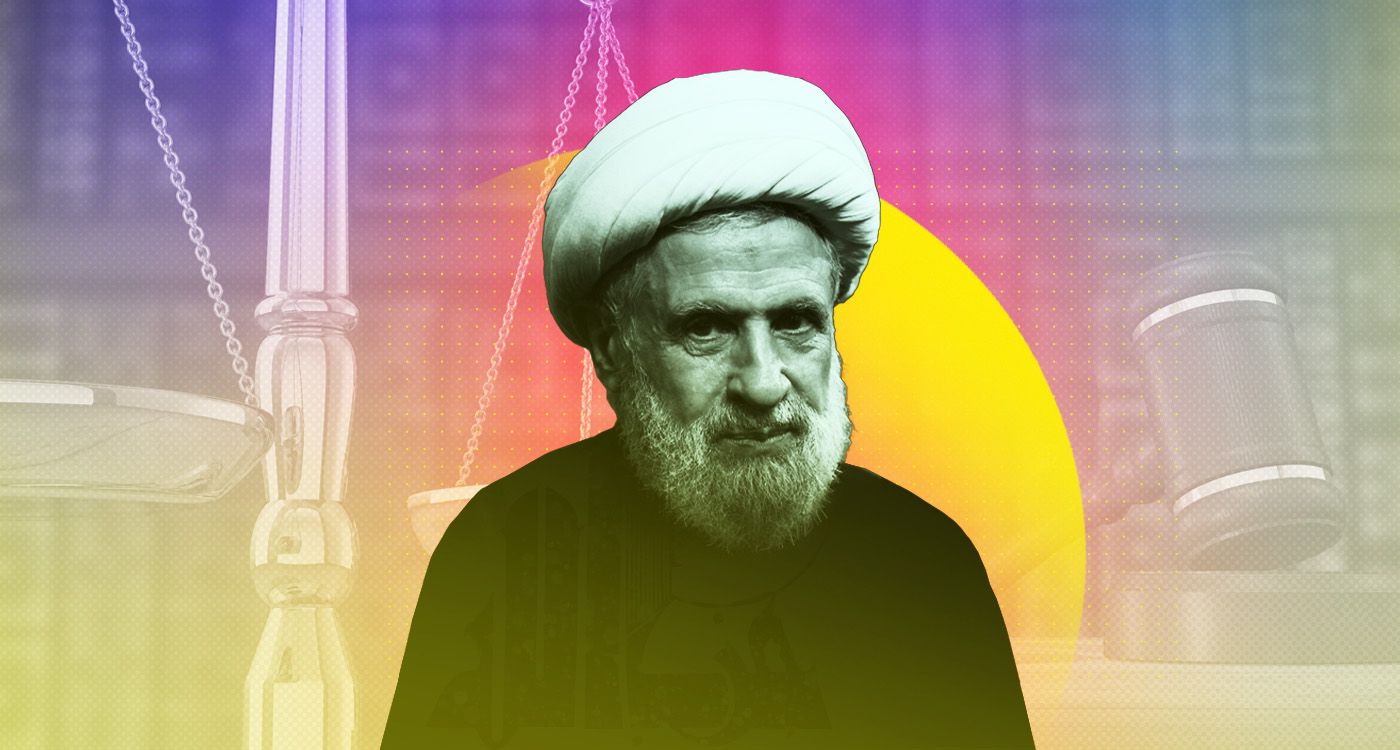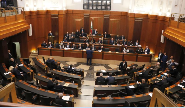
A group of MPs and political figures filed a criminal complaint Wednesday at the Palace of Justice against Hezbollah’s Secretary-General Naim Qassem, following his recent statements. The move places the Lebanese judiciary before a critical test of its ability to assert state authority and sovereignty.
The complaint, lodged Wednesday by lawmakers and members of the Sovereignist Front, comes after an August 19 meeting during which several parliamentarians and political figures announced their intention to take legal action against Qassem and refer the case to the Court of Cassation.
They argue that Qassem’s August 15 statement warning that any attempt to disarm Hezbollah “would trigger a civil war and end life in Lebanon” constitutes a direct threat to civil peace and is punishable under Lebanese law. The complaint, targeting Qassem and anyone implicated during the investigation, is expected in the coming days, with Rifi coordinating the effort on behalf of the plaintiffs.
Legal experts say the case could mark a pivotal moment for Lebanon. The judiciary is being asked to rule on statements made by a senior Hezbollah official. “We are at a crossroads,” says lawyer Majd Harb, describing the move as a test of the justice system’s ability to operate independently of political pressures.
The Judicial Process
“Anyone who feels threatened by inciting statements can file a complaint,” says Harb. However, he notes that the main party harmed by Qassem’s remarks is the Lebanese state itself, represented by the Attorney General, who should proactively act to safeguard national sovereignty and peace.
If the public prosecutor’s office opens an investigation without waiting for a complaint, it would send a strong signal. The judiciary has often faced criticism for passivity or yielding to political pressures.
“Plaintiffs can file their complaint with either the investigating judge or the Attorney General at the Court of Cassation,” says Harb in an interview with This is Beirut. In both cases, the law requires summoning the individual for questioning. “No one is above the law. The only exception is the President of the Republic, who is personally visited by the judge,” explains Harb.
The next step is the hearing, during which the judge should hear both sides. “Qassem should be treated like any other Lebanese citizen. Sending a notification to his last known address is sufficient,” he adds. If he refuses to appear, he could be tried in absentia, but only after due process, including a summons and, if necessary, a default arrest warrant.
The Complaint and Its Symbolic Role
The complaint is criminal. Once the file is received, the investigating judge will examine the alleged offenses and decide which court should handle prosecution. “It is too early to predict the outcome, particularly since other Hezbollah-related offenses could fall under different jurisdictions: the financial prosecutor for money laundering, the environmental court, civil or military courts, or even the State Council,” notes Harb.
Regarding the plaintiffs, “the law makes no distinction between ordinary citizens, party leaders or parliamentarians. For MPs, the impact is mainly moral and symbolic, as they represent the people or a political position. Legally, what matters is the offense itself. The judiciary can act even without a complaint, while multiple complaints will have no effect if there is no will to enforce sanctions,” he adds.
At a Crossroads
Summoning the Hezbollah chief would set a historic precedent. “Even if a judge simply agrees to hear him, that alone would be a significant step,” says Harb. He sees the complaint as a crucial test: “Either the Lebanese judiciary upholds its oath and treats everyone equally, or it continues the long-standing pattern of blockages and political pressure.”
“In the past, complaints were filed against Hezbollah, its former Secretary-General Hassan Nasrallah, or its financial arm, al-Qard al-Hassan, to prompt judicial action. These were routinely dismissed by judges indirectly influenced by Hezbollah,” recalls Harb.
Now, the future of the Lebanese state itself is at stake. “Without an independent judiciary, all political, presidential, military or security positions amount to empty words,” he warns.
If the complaint is seriously handled, it could mark a decisive step toward reinforcing state sovereignty and reaffirming the judiciary as a pillar of the state. If it fails, says Harb, it would be “a defeat not only for the plaintiffs but also for the presidency and the government.”




Comments